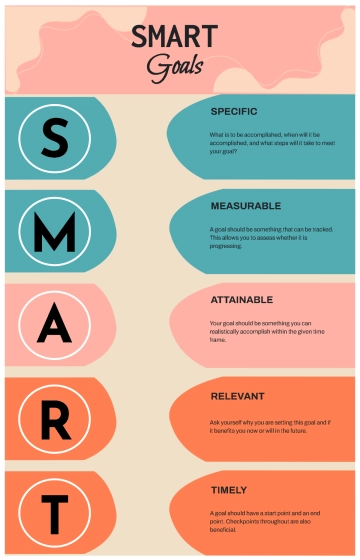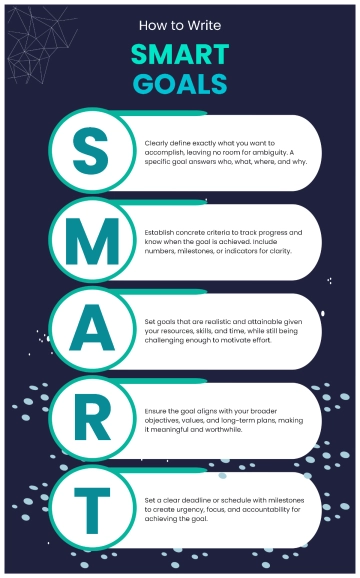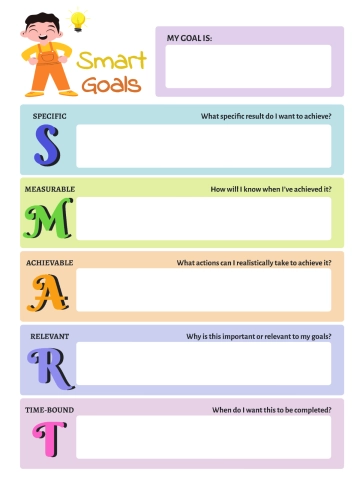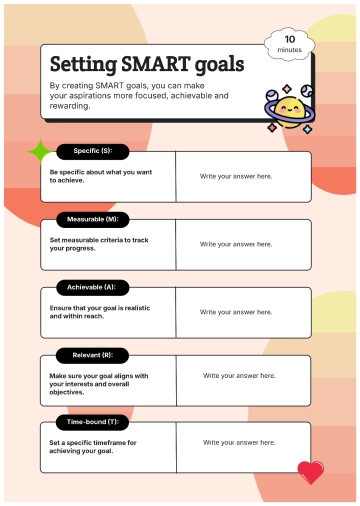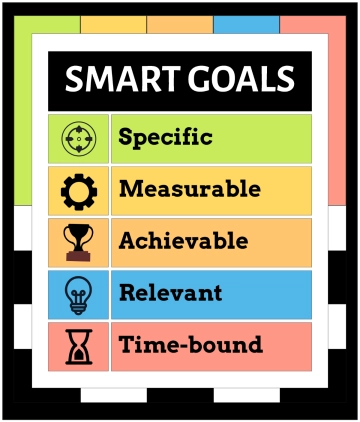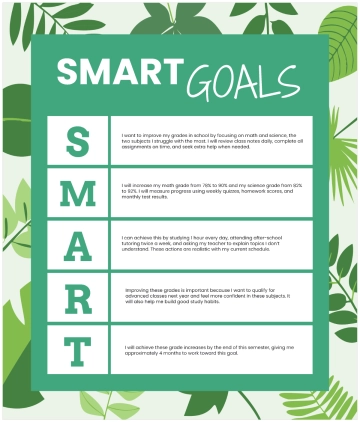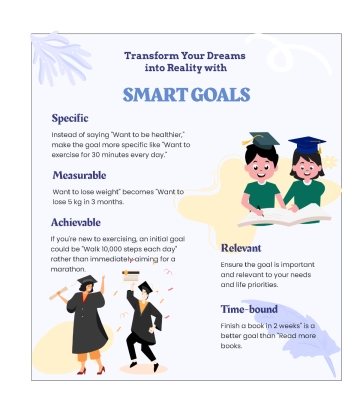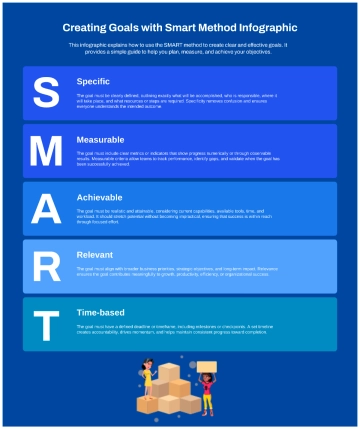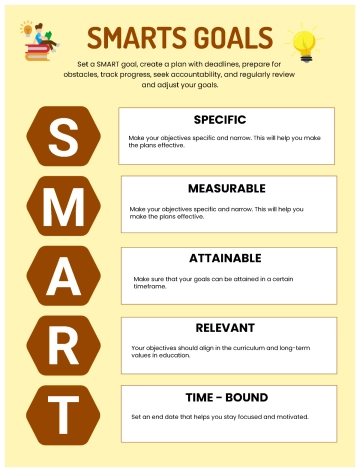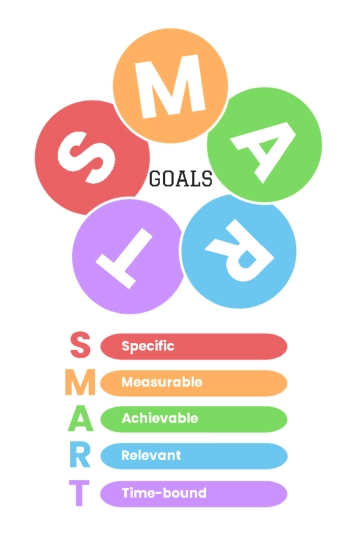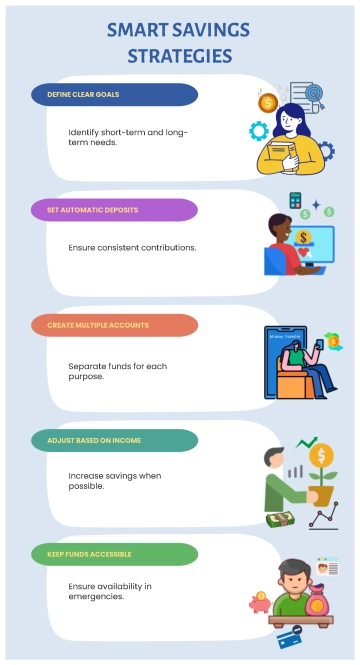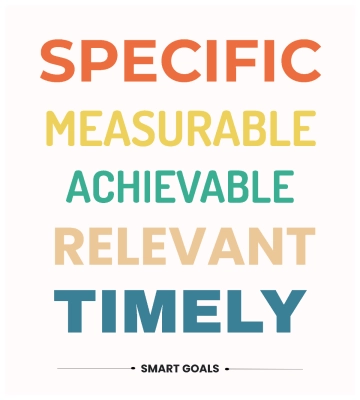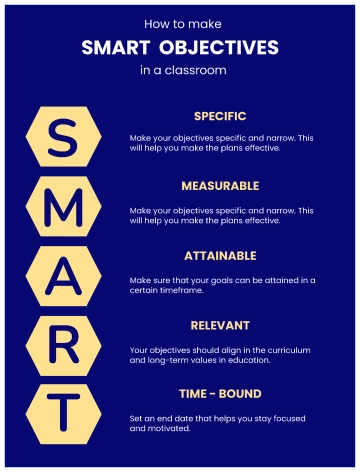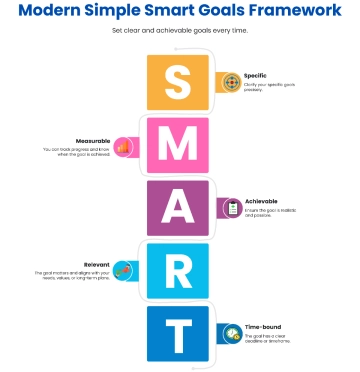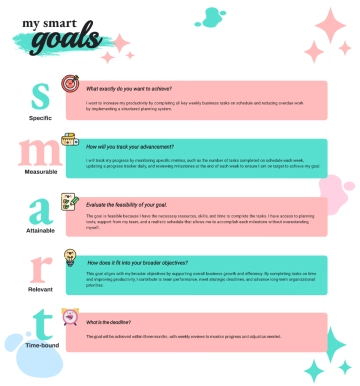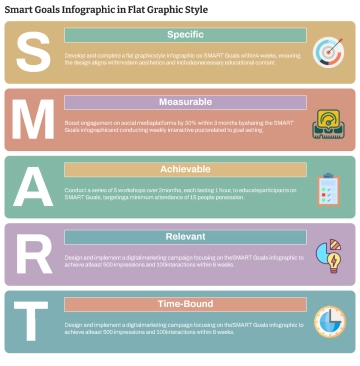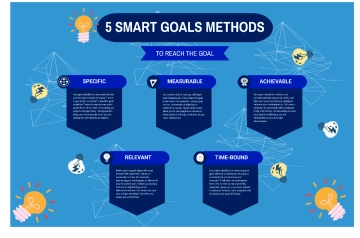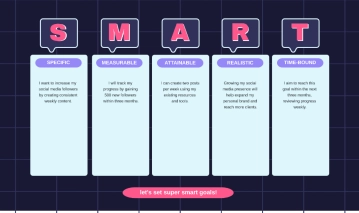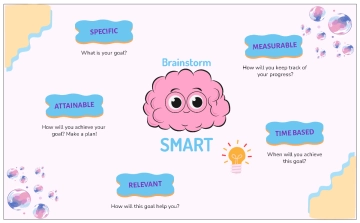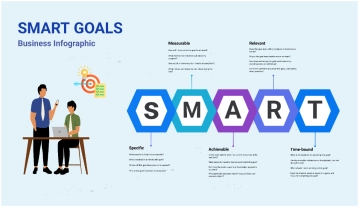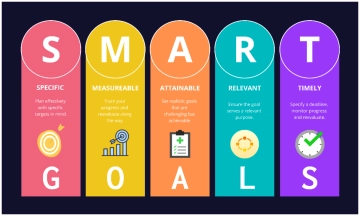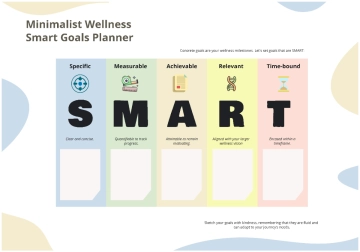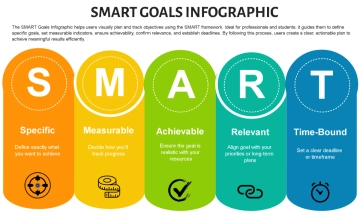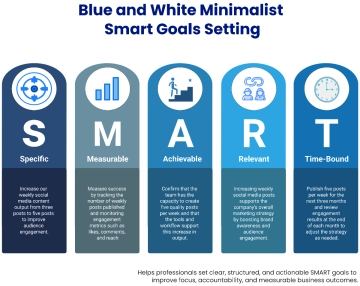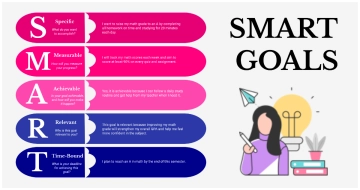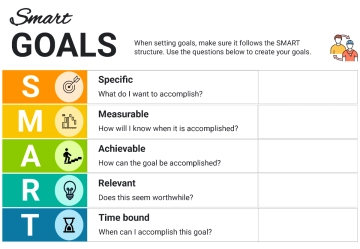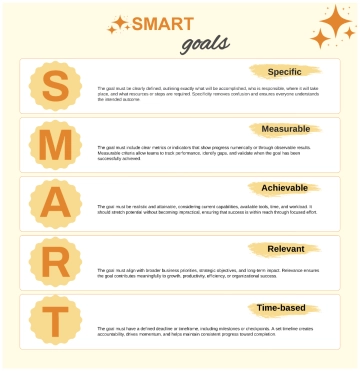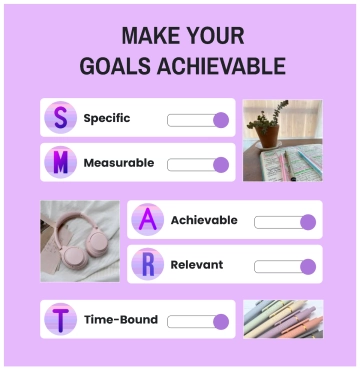Free SMART Goals Lesson

Prepared by: [YOUR NAME]
Organization: [YOUR COMPANY NAME]
Objective:
The objective of the SMART Goals lesson is to equip students with the necessary skills and knowledge to set effective goals using the SMART criteria. By the end of the lesson, students should be able to:
Component | Description |
|---|---|
S - Specific | Define a clear, concise, and tangible goal(s) [YOUR SPECIFIC GOAL(S)]. Ensure it answers the questions: who, what, where, when, and why. Be precise in outlining exactly what you want to accomplish. |
M - Measurable | Determine [YOUR MEASURABLE OUTCOMES]. Identify specific metrics, tools, or methods to track progress effectively. Establish measurable criteria to evaluate success and define clear milestones to mark progress along the way. |
A - Achievable | Make sure the goal(s) are [ACHIEVABLE]. Assess the resources, skills, and support needed to accomplish the goal(s). Evaluate whether they are realistic and within reach given your current circumstances. Identify any potential obstacles and develop strategies to overcome them. |
R - Relevant | Set [YOUR RELEVANT GOAL(S)]. Ensure that the goal(s) align with broader objectives, values, and priorities in your personal or professional life. Consider how achieving the goal(s) will contribute to your overall growth and success. Ensure that the goal(s) are meaningful and worthwhile pursuing. |
T - Time-bound | Set a [TIME-BOUND DEADLINE] for achieving the goal(s). Assign a specific timeframe or deadline to each goal to create a sense of urgency and accountability. Establishing a deadline helps to prioritize tasks, maintain focus, and track progress effectively. Ensure that the timeline is realistic and achievable within the given constraints. |
Action Plans:
Identify Actionable Steps: Break down the goal into smaller actionable steps or tasks that need to be completed to achieve the overarching goal. For example, [SPECIFIC ACTION STEPS].
Create a Timeline: Establish a timeline or schedule outlining when each action step should be completed to stay on track. For example, [TIMELINE OR DEADLINES].
Allocate Resources: Determine what resources, tools, or support are needed to accomplish each action step effectively.[REQUIRED RESOURCES].
Monitor Progress: Regularly review progress on each action step, updating the timeline or making adjustments as necessary.[METHOD FOR TRACKING PROGRESS].
Adjust and Adapt: Be flexible and willing to adjust the action plan as needed based on changes in circumstances or unforeseen challenges.[STRATEGIES FOR ADAPTING THE PLAN].
Accountability:
Regularly check in with a mentor, coach, or accountability partner to provide updates on progress and discuss any challenges or obstacles faced. Accountability partners can offer support, encouragement, and guidance to help you stay on track and motivated towards achieving your goals. For example, [INSERT METHOD OF ACCOUNTABILITY] and [WHO WILL BE RESPONSIBLE FOR CHECK-INS].
Notes:
Interactive Activities: Incorporate [ENGAGING ACTIVITY] interactive activities to keep students actively involved in the lesson. This could include group discussions, role-playing scenarios, or hands-on exercises.
Feedback Mechanism: Establish a [FEEDBACK METHOD] feedback mechanism to gather insights from students throughout the lesson. This could be through [METHODS] to ensure understanding and address any questions or concerns.
Real-World Examples: Integrate [REAL-LIFE EXAMPLES] real-world examples relevant to students' experiences to illustrate the application of SMART goals in various contexts. Encourage students to relate the concepts to their personal or academic goals.
Reflective Journaling: Encourage students to maintain a [REFLECTIVE JOURNAL] reflective journal to document their thoughts, insights, and progress throughout the lesson. This provides an opportunity for self-assessment and helps reinforce learning objectives.
Peer Collaboration: Foster [PEER COLLABORATION] peer collaboration and support by assigning group tasks or projects related to SMART goal setting. This encourages teamwork, communication, and peer learning among students
- 100% Customizable, free editor
- Access 1 Million+ Templates, photo’s & graphics
- Download or share as a template
- Click and replace photos, graphics, text, backgrounds
- Resize, crop, AI write & more
- Access advanced editor
Unlock your productivity potential with the SMART Goals Lesson Template from Template.net. This editable and customizable resource empowers you to craft tailored lesson plans effortlessly. Seamlessly edit in our AI Editor Tool, ensuring your objectives are specific, measurable, achievable, relevant, and time-bound. Streamline your teaching journey today!
